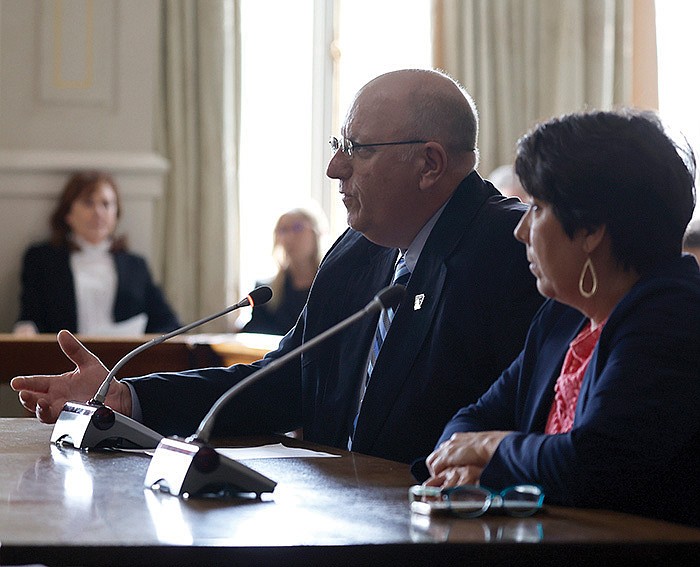A bill to allow some local elected officials to meet outside of public view was defeated Tuesday in a Senate committee.
House Bill 1610 would have amended the Arkansas Freedom of Information Act to allow elected officials to meet informally if the meeting is made up of less than a third of the entire body present. The bill, sponsored by Rep. Mary Bentley, R-Perryville, was defeated on a voice vote in the Senate Committee on State Agencies and Governmental Affairs.
Bentley argued the bill was necessary to allow justices of the peace, council members and school board members to have informal discussions about policy issues without fears of running afoul of the state's Freedom of Information Act.
The bill's Senate sponsor, Sen. John Payton, R-Wilburn, likened the Freedom of Information Act's provision regulating open meetings to a "gag order" on justices of the peace and other elected officials as the statute does not have a definition for a public meeting. If two or more elected officials meet to discuss official business it could be considered a meeting and must be open to the public, according to the Arkansas Attorney General's 2022 Freedom of Information Act Handbook.
"If we don't define what a meeting is then we essentially put a gag order on every [justice of the peace], every councilman and school board member," Payton said.
Others pushed back, saying the bill would have allowed local officials to conduct business outside the public view.
"As an elected official, I don't see that it makes my job harder," Beth Coger, a member of the Washington County Quorum Court, told the committee. "I just think that the law, the way we have it now, gives the public -- the boots on the ground people -- a way to hold us accountable."
While the bill would limit informal meetings to less than a third of an elected body, some worried that it would allow public officials to make policy behind closed doors.
Robert Steinbuch, a law professor at the University of Arkansas at Little Rock, member of the Freedom of Information Act task force and columnist for the Arkansas Democrat-Gazette, said the bill would have allowed three elected officials to meet, who could each meet with three others, and so on.
Payton said people will always have the option to vote out their local representatives if they think they are privately making bad policies.
"If they're running out there with preformed ideas and rubber stamping them, you should un-elect them," Payton said. "If you're asking questions about how they arrived at a policy and they won't give you answers, you should un-elect them."
The original version of Bentley's bill would have defined a public meeting as a quorum, the minimum amount of lawmakers who need to be present to take action. The bill was voted down in committee in March, but she amended it to change the definition of a meeting as a third of a public body present.
